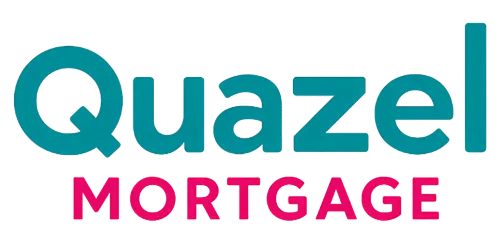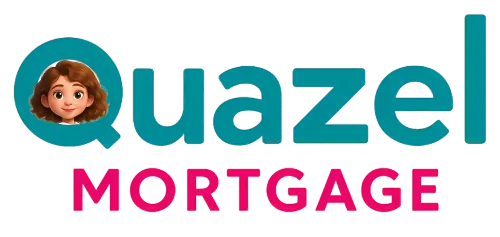Buying a Home?
Let’s Make It
Make Sense.
We break down every step so you feel confident, clear, and ready to move forward. Our team’s here to help — no pressure, just real guidance.

Getting a loan
is easy!
Apply Online
Kick off the process with a simple online application, available 24/7 for your convenience.
We get straight to work
With our streamlined process, we can quickly determine your eligibility and loan terms.
Meet your lender
Discuss the final details, review the terms, and receive your home loan in a timely manner.

How do I qualify for a Mortgage Pre-Approval Letter?
To qualify for a Pre-Approval Letter, we consider a few key factors to ensure a streamlined and transparent process. Our goal is to create an easy and enjoyable experience for you and your family. Here are the typical qualifications you'll need to meet:
Steady Employment or Reliable Income
Credit History showing responsible use of credit
Active Checking Account for proof of funds (Down Payment)
Monthly Debt Overview. To calculate how much home you can comfortably afford.
Get a Quick Pre-Approval Decision
We know that buying a home is a big step — and waiting around for answers can be stressful. That’s why we’ve built a streamlined, online pre-approval process to give you fast, reliable results.
Once you submit your application and supporting documents, our team moves quickly to review your credit, income, and financials. In many cases, you’ll receive your pre-approval letter within just a few hours — so you can start shopping for your new home with confidence.
We’re here to remove the guesswork and help you take the next step without unnecessary delays.

17+
Wholesale Partners
20+
Years of Experiance
800+
Cities Covered
9+
Team Members
AVAILABLE LOANS
HE-LOAN / HELOC
Let you borrow money using the value (equity) in your home. A Home Equity Loan gives you a lump sum with fixed monthly payments, good for large one-time expenses. A HELOC is more like a credit card — you borrow as needed up to a limit and only pay interest on what you use. Both use your home as collateral, so on-time payments are important.
Vacation Home Loans
Similarly these work a lot like primary home loans but are used for homes you don’t live in full-time. The loan amounts are usually larger, and the requirements can be stricter — lenders often look for higher credit scores, bigger down payments, and strong income. Monthly payments are spread out over many years, and the home serves as collateral in case you stop making payments.
Investment Loan
These loans are used to buy homes you don’t plan to live in — like rental houses or properties you plan to flip or hold for profit. These loans are designed for investors looking to make money through rent or resale. Because they carry more risk for lenders, they usually require a larger down payment, higher credit scores, and proof of income or rental potential. Payments are made monthly, just like other home loans.
Primary Residents Loans
These loans help people buy a home to live in without needing to pay the full price upfront. These loans provide a large amount of money that’s paid back over time, usually 15 to 30 years, through monthly payments. Designed for long-term living, they make it possible for families to own a home while spreading out the cost in a more affordable way. Approval is based on things like income, credit, and debt — and the home itself acts as collateral for the loan.
Self-Employed
Asset, Bank Statement, and P&L Loans help business owners qualify for a mortgage without using traditional W-2s or tax returns. Asset Loans use your savings, investments, or retirement funds to show you can repay the loan. Bank Statement look at 12–24 months of deposits to estimate your income. Profit & Loss use a CPA-prepared report of your business’s income and expenses instead of full tax returns. These loans offer flexibility but may come with higher rates or down payment requirements.
Reverse Mortgages
Are special loans for homeowners age 62 and older that let them turn some of their home’s equity into cash — without making monthly mortgage payments. Instead of paying the lender, the lender pays you through a lump sum, monthly payments, or a line of credit. You keep ownership of the home and repay the loan later, usually when the home is sold, the owner moves out or passes away. It’s a way to access money in retirement years while staying in your home.
Testimonials
10/10 experience!
They were able to get all of the backend work done and got me into a house with no difficulties quickly! I will 100% use them again for the next time I move. Jerry and Troy are extremely knowledgeable and knew exactly which questions to ask to find me the best rates and grants!
JOHN R.
I can’t recommend Jessie at highly enough! After struggling to get responses from other loan officers, he went above and beyond to help me secure my loan. As a veteran, he truly understands the importance of supporting his fellow service members, and it shows in his dedication and expertise. Jessie not only found me the best rates possible, but he also had an incredible team behind him that made the entire process seamless and stress-free. Thanks to their hard work, I saved a significant amount of money. If you’re looking for a knowledgeable, supportive, and reliable loan officer, look no further than Jessie at New Point Lending. He’s a true gem in the industry!
Dallin
Frequently Asked Questions
What’s the difference between being pre-qualified and pre-approved?
Pre-qualification is a quick estimate based on the info you provide. Pre-approval is more official — we verify your income, credit, and documents so you’re ready to make an offer.
How much do I need for a down payment?
It depends on the loan type. Some loans require as little as 0% (VA & USDA), 3% (Conventional FTHB), or 3.5% (FHA). We’ll help you find the best option based on your situation.
What credit score do I need to buy a home?
Most loan programs start around 580–620. Some will go down to 500, but keep in mind the higher your score, the better your rate. We’ll review your full credit picture and help improve it if needed.
I’m self-employed. Can I still get a mortgage?
Absolutely. We offer loans that use bank statements, assets, or CPA-prepared profit and loss statements instead of tax returns.
Can I buy a vacation home with the same loan I’d use for my main home?
Not quite — vacation (secondary) homes and investment properties have stricter requirements and usually need more money down and higher credit scores.
What’s considered a “primary residence”?
It’s the home you live in most of the year. You’ll usually need to move in within 60 days of closing.
Can I qualify with rental income?
Yes! We can count projected rent or current leases to help boost your income during qualification.
Do I lose ownership with a reverse mortgage?
No — you stay on the title. The loan is repaid when the home is sold or no longer your primary residence.


Facebook
Instagram
Youtube